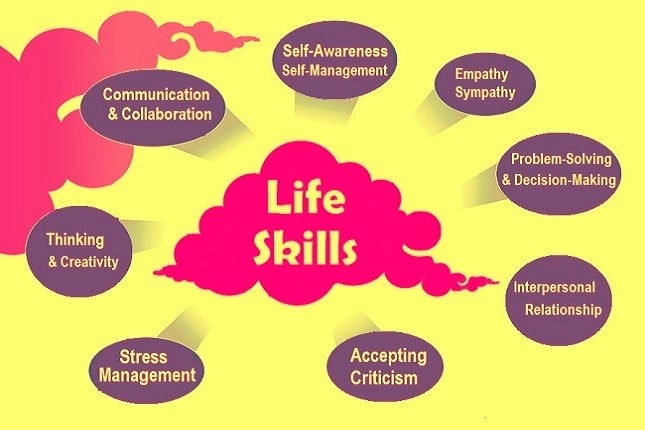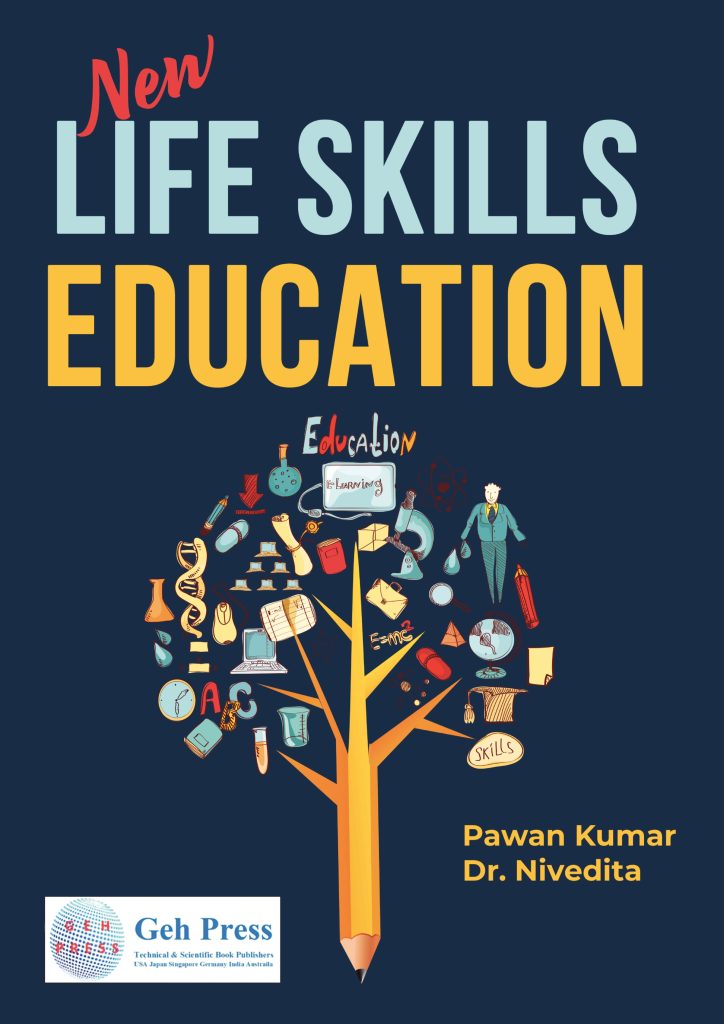In an increasingly complex world, life skills education is essential for preparing students to navigate real-life challenges successfully. While academic subjects provide foundational knowledge, practical skills like financial literacy, communication, emotional intelligence, and problem-solving are just as crucial for long-term success.
This article explores the importance of life skills education, essential skills students should learn, and strategies for integrating life skills into the modern curriculum.
What is Life Skills Education?

- Life skills education refers to teaching students practical abilities that help them manage personal, social, and professional challenges effectively.
- These skills enhance independence, resilience, and adaptability, enabling students to make informed decisions.
- Recognized by organizations like UNESCO and WHO, life skills education is key to developing well-rounded individuals.
📍 Life skills bridge the gap between classroom learning and real-world experiences.
Why is Life Skills Education Important?
- Prepares Students for Adulthood – Helps with financial management, household responsibilities, and personal well-being.
- Enhances Emotional Intelligence – Encourages self-awareness, empathy, and effective stress management.
- Boosts Career Readiness – Equips students with communication, teamwork, and leadership skills.
- Encourages Independent Thinking – Teaches problem-solving and decision-making skills for real-life situations.
- Promotes Social Responsibility – Helps students understand ethics, sustainability, and civic engagement.
📍 Education is incomplete without the practical skills needed to navigate adulthood.
Essential Life Skills for Students
Life skills can be divided into three main categories: Personal Development, Social Skills, and Practical Skills.
1. Personal Development Skills (Self-Management & Well-Being)
📌 Time Management & Organization ⏳
✔ Helps students prioritize tasks and balance responsibilities.
✔ Teaches the use of planners, schedules, and digital productivity tools.
📌 Financial Literacy 💰
✔ Covers budgeting, saving, investing, and responsible spending.
✔ Introduces basics of banking, credit, and loans.
📌 Emotional Intelligence & Mental Health 🧠
✔ Encourages self-awareness, empathy, and emotional regulation.
✔ Provides coping strategies for stress, anxiety, and decision-making.
📌 Decision-Making & Critical Thinking 🤔
✔ Develops the ability to assess risks and solve problems logically.
✔ Encourages students to think independently and make informed choices.
📍 Example: Teaching students to create a personal budget and set financial goals.
2. Social & Interpersonal Skills
📌 Communication Skills 🗣
✔ Covers verbal, non-verbal, and written communication for personal and professional settings.
✔ Enhances public speaking, negotiation, and active listening skills.
📌 Teamwork & Collaboration 🤝
✔ Helps students work effectively in groups and resolve conflicts.
✔ Prepares them for leadership and cooperation in diverse settings.
📌 Civic Responsibility & Ethical Decision-Making 🌍
✔ Encourages participation in community service and social responsibility.
✔ Develops awareness of environmental sustainability and human rights.
📌 Digital Literacy & Online Safety 💻
✔ Educates students on responsible internet use, cybersecurity, and privacy.
✔ Teaches digital communication skills for the modern workplace.
📍 Example: Hosting a mock job interview exercise to improve communication and confidence.
3. Practical Life Skills
📌 Household Management 🏠
✔ Covers essential skills like cooking, cleaning, laundry, and home maintenance.
✔ Includes emergency preparedness and basic first aid training.
📌 Career Readiness & Professionalism 🎓
✔ Teaches resume writing, job applications, and interview techniques.
✔ Covers workplace etiquette, networking, and entrepreneurship basics.
📌 Problem-Solving & Conflict Resolution ⚖
✔ Develops strategies to resolve disagreements and manage stress.
✔ Teaches how to handle failures and setbacks constructively.
📍 Example: Teaching students how to prepare nutritious meals and maintain a healthy diet.
Integrating Life Skills into Education
1. Project-Based Learning (PBL) 🎯
✔ Assign real-world challenges like budgeting projects, career planning, and home economics tasks.
2. Experiential Learning & Role-Playing 🎭
✔ Conduct mock job interviews, debates, and business simulations.
3. Financial & Career Workshops 💼
✔ Provide training in financial literacy, investing, and career exploration.
4. Digital Literacy & Cyber Awareness 📡
✔ Educate students on safe online behavior, ethical technology use, and media literacy.
5. Community Engagement & Volunteering 🌍
✔ Encourage students to participate in local projects, leadership roles, and service-learning initiatives.
📍 A well-rounded curriculum must combine academics with real-world applications.
Challenges & Solutions in Life Skills Education
🚧 Lack of Curriculum Focus – Many schools prioritize academics over practical skills.
✅ Solution: Integrate life skills into existing subjects like math (financial literacy) and language arts (communication skills).
🚧 Limited Teacher Training – Not all educators have experience teaching life skills.
✅ Solution: Provide professional development programs for teachers.
🚧 Resistance to Non-Traditional Teaching Methods
✅ Solution: Use interactive, real-world learning approaches to keep students engaged.
🚧 Unequal Access to Resources
✅ Solution: Partner with community organizations, businesses, and online platforms to provide learning opportunities.
📍 A collaborative approach between educators, parents, and policymakers ensures successful life skills education.
The Future of Life Skills Education
🚀 AI & Digital Learning – Interactive platforms providing personalized life skills training.
🌍 Global Competency Training – Preparing students for international careers and cultural understanding.
📡 Hybrid & Experiential Learning – Blending online courses with hands-on experiences.
📍 As society evolves, life skills education must adapt to equip students for the future.
Final Thoughts: Preparing Students for Real Life
Life skills education is as important as traditional academics knowledge. By equipping students with practical, social, and career skills, we empower them to thrive in personal, professional, and global contexts.
📚 What life skill do you think is most important for students today? Share your thoughts below! 🚀💡✨



